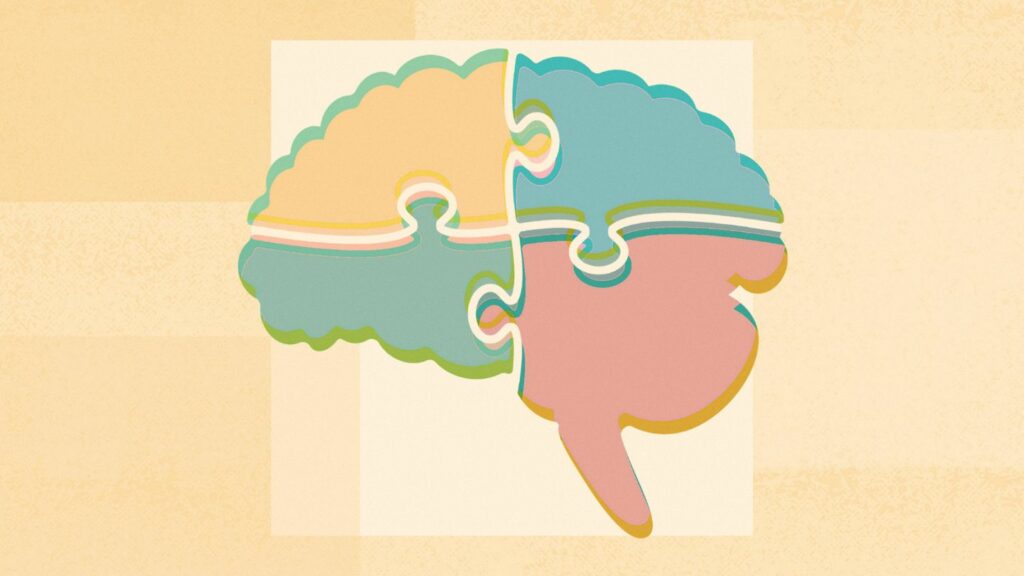Bipolar disorder can be a very challenging mental illness to cope with. If you are one of the millions of people who suffer from bipolar disorder, you know that there is no one-size-fits-all approach to treatment. Some people find relief from traditional medications, while others find success with natural treatments. In this blog post, we will discuss some effective strategies for coping with bipolar disorder using natural methods.
Contents
Defining Bipolar Disorder
 Bipolar disorder is a mental illness that is characterized by extreme mood swings. These mood swings can range from periods of intense energy and happiness (known as mania) to periods of deep depression. Bipolar disorder can be a very debilitating condition, making it difficult for sufferers to function in their day-to-day lives.
Bipolar disorder is a mental illness that is characterized by extreme mood swings. These mood swings can range from periods of intense energy and happiness (known as mania) to periods of deep depression. Bipolar disorder can be a very debilitating condition, making it difficult for sufferers to function in their day-to-day lives.
There are two main types of bipolar disorder:
- Bipolar I Disorder: This type of bipolar disorder is characterized by periods of mania and depression. Bipolar I disorder can be very severe, and can sometimes lead to hospitalization.
- Bipolar II Disorder: This type of bipolar disorder is characterized by periods of hypomania (a less severe form of mania) and depression. Bipolar II disorder is not as severe as bipolar I disorder, but can still be very disruptive to a person’s life.
There are a lot of varying causes of bipolar disorder, ranging from genetic factors to brain chemistry. However, the exact cause of bipolar disorder is still unknown.
Natural Bipolar Treatment Options
As we mentioned before, there is no one-size-fits-all approach to treating bipolar disorder. Medications are often prescribed to help stabilize mood swings, but they don’t work for everyone. Therapy is another popular treatment option, but again, it’s not effective for everyone. Some people find that natural bipolar treatments are the best way to manage their condition.
Here are some popular natural bipolar treatments which have proven to be effective and beneficial.
Education and awareness
The foremost solution to any type of ailment is gaining knowledge and understanding about it. The better you understand your condition, the easier it will be to cope with it. There are many resources available online and in libraries that can help you learn more about bipolar disorder. Additionally, there are support groups that can provide valuable information and support.
Because bipolar disorder has a bad name with a lot of stigmas attached to it, people hesitate in talking about it. However, it is important to have an open dialogue about bipolar disorder in order to help reduce the stigma and promote understanding.
Some of the most common and readily available sources for information about bipolar are:
- Books
- Podcasts
- Webinars
- Online Communities
- Support Groups
- Educational Videos
- Blogs
All these are crafted by people who have bipolar disorder or have extensive experience in dealing with the condition.
Relaxation techniques
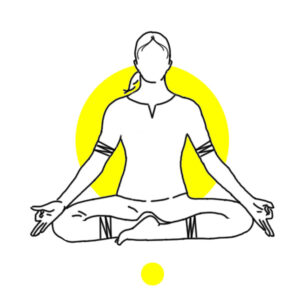 Before understanding how they help bipolar disorder, let us learn what relaxation techniques actually mean. These are a group of practices that are meant to induce relaxation and reduce stress. Relaxation techniques can be broadly classified into two categories: active and passive.
Before understanding how they help bipolar disorder, let us learn what relaxation techniques actually mean. These are a group of practices that are meant to induce relaxation and reduce stress. Relaxation techniques can be broadly classified into two categories: active and passive.
Active techniques require some level of physical activity, while passive techniques do not.
Some popular relaxation techniques that can help people with bipolar disorder are:
- Yoga: A form of exercise that combines physical postures, breathing exercises, and meditation.
- Tai chi: A gentle form of martial art that involves slow and graceful movements.
- Progressive muscle relaxation: A technique that involves tensing and relaxing different muscle groups in the body.
- Deep breathing: A simple technique that can be done anywhere and at any time. It involves taking deep, slow breaths in and out.
- Guided imagery: A technique that involves using your imagination to visualize calming and peaceful scenes.
- Mindfulness meditation: A type of meditation that involves paying attention to the present moment without judgment.
These relaxation techniques can help people with bipolar disorder by reducing stress and anxiety, as well as improving mood. They also contribute to overall physical and mental well-being by reducing blood pressure, improving sleep, and boosting immunity.
Lifestyle changes
Lifestyle is a major aspect that can trigger bipolar disorder or make it worse. This is so because our lifestyle choices have a direct impact on our brain chemistry. Therefore, making healthier lifestyle choices can help in managing bipolar disorder.
Some of the lifestyle changes that can help people with bipolar disorder are:
- Eating a healthy diet: What you eat can have a big impact on your mood and energy levels. Eating a balanced diet that includes plenty of fruits, vegetables, and whole grains can help stabilize your mood and give you the energy you need to get through the day. Avoiding processed foods, sugary drinks, and caffeine can also be helpful.
- Getting enough sleep: Getting adequate sleep is crucial for people with bipolar disorder. Not getting enough sleep can trigger manic episodes, while getting too much sleep can worsen depressive episodes. It is important to establish a regular sleep schedule and stick to it as much as possible.
- Exercising regularly: Exercise is an effective way to improve mood and reduce stress. It can also help increase energy levels and promote better sleep.
- Avoiding alcohol and drugs: Alcohol and drugs can interact with bipolar medications and make them less effective. They can also trigger or worsen episodes of mania or depression. It is important to avoid using alcohol or drugs if you have bipolar disorder.
- Staying socially active: Social support is an important part of managing bipolar disorder. Staying connected with friends and family can help reduce stress and improve mood. Joining a support group or participating in therapy can also be beneficial.
Making these lifestyle changes can help people with bipolar disorder manage their condition and improve their quality of life.
Herbs and supplements
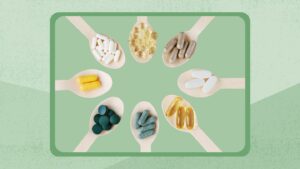 One might think of supplements only for physical well-being, but they can also play a role in mental health. Some herbs and supplements have been found to be helpful in treating bipolar disorder. Some of the herbs and supplements that have been studied for their ability to treat bipolar disorder include:
One might think of supplements only for physical well-being, but they can also play a role in mental health. Some herbs and supplements have been found to be helpful in treating bipolar disorder. Some of the herbs and supplements that have been studied for their ability to treat bipolar disorder include:
- Lithium orotate: A type of lithium that is available in supplement form. Lithium is a mood-stabilizing medication that is often used to treat bipolar disorder.
- Omega-three fatty acids: A type of fat that is found in fish oil and flaxseed oil. Omega-three fatty acids have anti-inflammatory and brain-protective effects.
- Inositol: A type of sugar that is found in many foods, including fruits, beans, and grains. Inositol has mood-stabilizing effects and can be helpful in treating bipolar disorder.
- Vitamin D: A vitamin that is found in fatty fish, eggs, and fortified milk. Vitamin D deficiency has been linked to bipolar disorder.
- Magnesium: A mineral that is involved in many biochemical processes in the body. Magnesium deficiency has been linked to mood disorders such as bipolar disorder.
- SAMe: A compound that is involved in the synthesis of neurotransmitters. SAMe supplementation has been found to be helpful in treating depression.
- St. John’s wort: It is one of the most popular herbal remedies for bipolar disorder. St. John’s wort is thought to work by increasing levels of serotonin in the brain, which further helps to stabilize mood swings.
- Rhodiola rosea: It is an herb that has been traditionally used to treat fatigue and stress. Rhodiola rosea can help in treating bipolar disorder by reducing stress and improving mood.
- Valerian: It is an herb that has been used for centuries to treat anxiety and insomnia. Valerian can help in treating bipolar disorder.
These herbs and supplements can be helpful in treating bipolar disorder, but it is important to speak with a doctor before taking any of them. Some of these herbs and supplements can further interact with medications.
Stress management
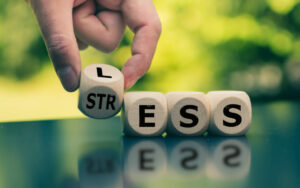 Stress is a root cause of many mental and physical health problems. It can worsen symptoms of bipolar disorder and trigger episodes of mania or depression. Learning how to manage stress can help people with bipolar disorder better control their condition.
Stress is a root cause of many mental and physical health problems. It can worsen symptoms of bipolar disorder and trigger episodes of mania or depression. Learning how to manage stress can help people with bipolar disorder better control their condition.
Some stress management techniques that may be helpful include:
- Identifying and avoiding triggers
- Making lifestyle changes (as stated above)
- Seeking therapy
- Acknowledging and processing emotions
- Indulging in self care
- Practicing hobbies
- Finding ways to express yourself
These are just a few of the many stress management techniques that exist. Experiment to find what works best for you. Remember, it is important to manage stress in order to keep bipolar disorder under control.
Acupuncture
Acupuncture is perhaps the most popular form of traditional Chinese medicine. It is a form of alternative medicine that involves inserting thin needles into the body at specific points. Acupuncture is thought to help in treating bipolar disorder by reducing stress and improving mood.
A study published in the Journal of Affective Disorders found that acupuncture was effective in treating bipolar disorder. The study found that acupuncture was more effective than medication in treating bipolar disorder. The study found that acupuncture reduced the number of days that people with bipolar disorder experienced symptoms of mania or depression. Acupuncture also improved the quality of life in people with bipolar disorder.
One of the principles that acupuncture works on is the insertion of needles into the appropriate points to rebalance the flow of energy in the body. It is thought that this helps to improve mood and reduce stress. Some of the targeted points of acupuncture for bipolar include:
- GB-20: This point is located on the back of the head. It is thought to help in treating headaches, neck pain, and stress.
- LI-11: This point is located on the elbow. It is thought to help in treating stress, anxiety, and insomnia.
- ST-36: This point is located on the leg. It is thought to help in treating fatigue, anxiety, and stress.
These are just a few of the many acupuncture points that exist. A trained acupuncturist will be able to insert needles into these points to help in treating bipolar disorder.
Light therapy
Light therapy is a modern and non-invasive treatment for bipolar disorder. It is also known as phototherapy. Light therapy involves exposing the eyes to bright light for a short period of time. Light therapy is thought to improve mood by resetting the body’s internal clock and improving serotonin levels.
A study published in the journal Biological Psychiatry found that light therapy was effective in treating seasonal bipolar disorder. The study found that light therapy was more effective than medication in treating seasonal bipolar disorder. The study found that light therapy improved the quality of life in people with seasonal bipolar disorder.
Light therapy is a safe and non-invasive treatment for bipolar disorder. It is a good option for people who do not want to take medication or who cannot take medication due to side effects.
Interpersonal and Social Rhythm Therapy (IPSRT)
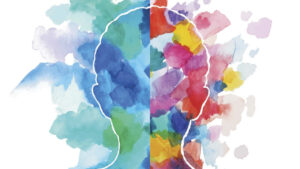
You may be wondering why we are talking about a type of therapy in natural treatments. However, it may come as a surprise to know that IPSRT is considered a natural treatment for bipolar disorder.
IPSRT is a type of therapy that focuses on the relationship between daily routines and mood. The goal of IPSRT is to help people with bipolar disorder stabilize their mood by stabilizing their daily routines. The key principle is to help people with bipolar disorder keep a regular sleep schedule, exercise routine, as well as eat regular meals.
A study published in the journal Biological Psychiatry found that IPSRT was effective in treating bipolar disorder. The study found that IPSRT was more effective than medication in treating bipolar disorder. The study found that IPSRT improved the quality of life in people with bipolar disorder.
IPSRT is a type of therapy that can be used in conjunction with medication or as a standalone treatment. IPSRT is a good option for people who want to stabilize their mood without medication.
These are just a few of the many natural bipolar treatments. While medication may be necessary for some people with bipolar disorder, there are many effective natural treatments that can help people manage their symptoms. If you or someone you know is struggling with bipolar disorder, talk to a mental health professional about the best treatment options.
Things To Consider
If you are thinking of undertaking natural bipolar treatment, there are a few things you should keep in mind.
- First, natural bipolar treatment is not a cure for bipolar disorder. Natural treatments can help people manage their symptoms, but they will not cure the underlying condition.
- Second, natural bipolar treatment is not a quick fix. Natural treatments often take time to work and may require some trial and error to find the right combination of treatments.
- Moreover, the effectiveness of these treatment options also varies on an individual basis. What works for one person may not work for another. They also require a great deal of consistency as well as patience
- Finally, natural bipolar treatment is not for everyone. Some people with bipolar disorder may also require medication to manage their symptoms.
If you are thinking of undertaking natural bipolar treatment, talk to a mental health professional to see if it is right for you.
Conclusion
To conclude, there are various kinds of natural bipolar treatment options available that can help people manage their symptoms. It is important to remember that bipolar disorder is a serious mental illness. If you are struggling with bipolar disorder, it is important to seek professional help. Natural treatments can be an effective adjunct to professional treatment, but they should not be used as a replacement for professional care.
If you or someone you know is looking for psychological help, Therapy Mantra is here for you. We are the leading providers of online therapy and counseling. Our team of highly trained and experienced therapists can provide assistance at the most affordable rates. Contact us today to learn more about our services. You may also visit our website to book an online therapy session or download our free Android or iOS app for more information.
